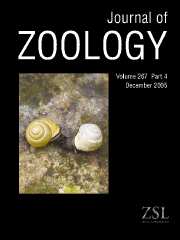Article contents
What causes the vulnerability of endemic animals? A case study from Sri Lanka
Published online by Cambridge University Press: 05 May 2004
Abstract
Around the world, endemic species with restricted ranges seem to be at particular risk of extinction. When range size is controlled, lowland continental species may be especially at risk, more so than island or montane species. Our study aimed to investigate reasons behind the high vulnerability of endemic species. In Sri Lanka, large-scale national surveys and intensive localized fieldwork established that endemic plant and animal species are mostly associated with undisturbed rainforest habitats. On the other hand, non-endemic species used both forest and non-forest habitats almost equally, suggesting they are less likely to suffer from deleterious edge effects. To understand the different distribution of endemic and non-endemic species, our study focused on rats. Compared to the widespread species, the endemic rat species had a larger home range and fed on fewer species of forest fruit, possibly indicating greater specialization. The abundance of the endemic species was also negatively correlated with the abundance of the non-endemic species, to which it was behaviourally subordinate. Greater specialization and competitive inferiority could both contribute to the vulnerability of endemic species.
- Type
- Research Article
- Information
- Copyright
- 2004 The Zoological Society of London
- 9
- Cited by


